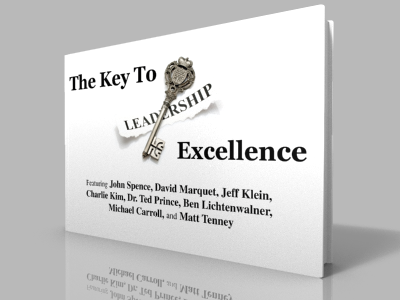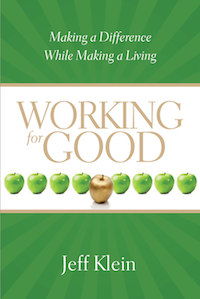Last week, in Part 1 of this post, we clarified what innovation is, and discussed how we can predict whether or not someone will be innovative based on the strength of a cognitive bias called the status quo bias. Here in Part 2, we’ll discuss how to apply this knowledge toward creating a highly innovative culture.
Because of the skill required to work with highly innovative people, organizations that are fortunate enough to have such people on their team often find it quite difficult to keep them on the team.
This is especially true for large organizations. Nothing will drive away highly innovative people more quickly than high levels of bureaucracy. Most large organizations become increasingly bureaucratic as they grow. As a result, they drive away innovators and gradually become less innovative as an organization.
There are, of course, exceptions to this general trend. It is possible, even in large companies, to create a culture that attracts and retains highly innovative people and, perhaps more important, helps people who are not naturally very innovative (the vast majority of people) to be more innovative as well. The key ingredient for creating and sustaining such a culture is being committed to serving and caring for our employees.
Two excellent examples are Google and the software giant, SAS, which are among the most innovative companies in the world. Every year, these two companies are also both highly ranked among the best companies to work for. On the 2013 list of the Fortune Magazine Best Companies to Work For, they were listed as number one and two, respectively.
The examples of how Google works to care for employees are almost legendary. They include free, on-site haircuts; gyms; pools; break rooms with video games, ping pong, billiards and foosball; on-site medical staff for easy doctor appointments; and the option to bring one’s dog in to work.
But Google didn’t invent this type of incredible workplace culture. They actually emulated the culture at SAS, a company that has produced absolutely phenomenal business outcomes. SAS has posted record earnings for 37 consecutive years, including $2.8 billion in 2012. CEO Jim Goodnight often says that the secret to their success is taking care of their employees.
One reason serving and caring for our people is so effective for building and sustaining a highly innovative culture is that when we truly care about our people and are committed to helping them grow, we don’t stifle innovation by worrying about our own position. Instead of thinking that we have to come up with all the good ideas to look good as leader, we are happy when our team has great ideas. Leaders who are more focused their own performance, instead of on leading their people well, tend to micromanage, which erodes trust and crushes innovation.
When we truly care about our people and are committed to helping them grow, we are also much more likely to trust them and give them high levels of autonomy. Providing high levels of autonomy is one the most important elements of attracting and retaining those rare, highly innovative people who abhor bureaucracy but can add so much value to our organization.
Perhaps more important, serving and caring for our people can help employees who are not naturally innovative to become more innovative. Most people have a fairly high status quo bias. As we discussed in Part 1 of this post, this means that they are very unlikely to suggest and act on ideas that are contrary to the status quo – i.e. ideas that are innovative – because of their fears of rejection and not fitting in and, in the case of the business world, fear of being fired.
When we are focused on serving our people and consistently caring for them, these fears are alleviated. With consistent care and trust, our people trust us more, and they know that we will not fire them for taking appropriate risks and making mistakes. The more secure people feel, the more likely they are to suggest and act on innovative ideas. We are essentially removing the status quo bias by removing the status quo.
Jim Goodnight of SAS offers a great example of just how powerful this can be. In the fall of 2008, the Great Recession was imminent. SAS faced the same issues that every other company in the analytics software industry faced. Sales plunged due to the budget cuts almost every business was making in preparation for what seemed like a long downturn. Other companies in the industry started laying off large numbers of employees.
But Goodnight’s response to the recession was dramatically different, as
Mark C. Crowley, author of
Lead From The Heart: Transformational Leadership For The 21st Century, describes in an article he wrote for
FastCompany:
“In early January 2009, Goodnight held a global webcast and announced that none of its 13,000 worldwide employees would lose their job. He simply asked them all to be vigilant with spending and to help the firm endure the storm. ‘By making it very clear that no one was going to be laid off,’ Goodnight told me, ‘suddenly we cut out huge amounts of chatter, concern, and worry – and people got back to work.’ What likely will be astonishing to many is that SAS had record profits in 2009 even though Goodnight was perfectly willing to let his then-33-year track record of increased profit come to an end.
“At 70 years old, Goodnight holds the conviction that ‘what makes his organization work are the new ideas that come out of his employee’s brains.’ He therefore holds his employees in the highest esteem. So while he fully anticipated that the recession would constrain the firm’s short-term revenues, he instinctively knew that his team would produce breakthrough products while his competitors were cutting costs. And even four years later, his commitment to his people has paid off handsomely. Said Goodnight, ‘new stuff we’re rolling out this year is going to take the market by storm.’”
Thanks for reading this post! As a gift, I’d like to give you this excellent eBook for FREE!
Just CLICK HERE, and I’ll send you this eBook, featuring chapters from John Spence, Jeff Klein, Charlie Kim, Michael Carroll, Ted Prince, David Marquet, and Ben Lichtenwalner.









